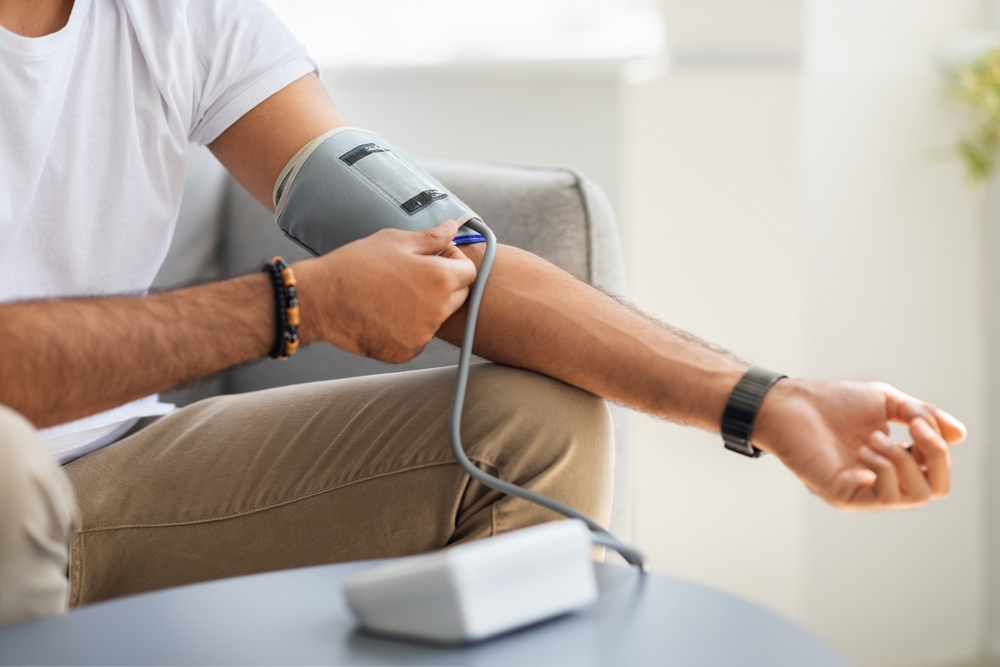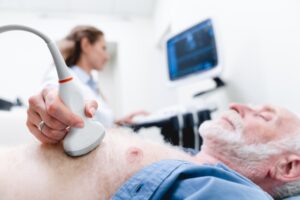Understanding your health is the first step toward managing it effectively. This is especially true for conditions like high blood pressure, also known as hypertension. Many people are familiar with the term, but fewer understand its most common form: essential, or primary, hypertension. This article offers a comprehensive guide on essential (primary) hypertension 101, covering what it is, its causes, and the available treatments. Our goal is to provide clear, accessible information to help you navigate this condition and work with your healthcare providers to protect your long-term health. Get a consultation with the best cardiologists in Brooklyn.
What Is Essential (Primary) Hypertension?
Essential hypertension is high blood pressure that doesn’t have a known secondary cause, like a kidney problem or thyroid disorder. It accounts for about 95% of all high blood pressure cases. Your blood pressure reading has two numbers: systolic (the top number) and diastolic (the bottom number).
- Systolic pressure: Measures the pressure in your arteries when your heart beats.
- Diastolic pressure: Measures the pressure in your arteries when your heart rests between beats.
Hypertension is diagnosed when these numbers are consistently elevated. According to the American Heart Association, blood pressure is categorized as follows:
- Normal: Less than 120/80 mm Hg
- Elevated: Systolic between 120-129 mm Hg and diastolic less than 80 mm Hg
- Hypertension Stage 1: Systolic between 130-139 mm Hg or diastolic between 80-89 mm Hg
- Hypertension Stage 2: Systolic at least 140 mm Hg or diastolic at least 90 mm Hg
- Hypertensive Crisis: Systolic over 180 mm Hg and/or diastolic over 120 mm Hg (requires immediate medical attention)
Because essential hypertension often develops without any warning signs, it’s often called the “silent killer.” Regular check-ups are crucial for early detection.
Unpacking the Causes and Risk Factors
While essential hypertension lacks a single identifiable cause, a combination of genetic and lifestyle factors is believed to contribute to its development. Understanding these risk factors can help you take preventive measures.
Genetic Predisposition
Family history plays a significant role. If your parents or other close relatives have high blood pressure, you are more likely to develop it as well. Certain ethnic groups also have a higher incidence of hypertension.
Lifestyle and Environmental Factors
Your daily habits have a major impact on your blood pressure. Key lifestyle risk factors include:
- High-Salt Diet: Consuming too much sodium can cause your body to retain fluid, which increases blood pressure.
- Lack of Physical Activity: Regular exercise helps strengthen your heart, allowing it to pump more blood with less effort.
- Obesity: Carrying excess weight puts extra strain on your heart and circulatory system.
- Chronic Stress: High levels of stress can lead to temporary, but significant, spikes in blood pressure.
- Excessive Alcohol Consumption: Drinking too much alcohol can raise blood pressure over time.
- Smoking: Nicotine causes blood vessels to narrow and your heart to beat faster, which raises your blood pressure.
Your Comprehensive Guide on Essential (Primary) Hypertension Treatment and Management
Managing essential hypertension is a lifelong commitment that involves a partnership between you and your healthcare team, including your primary care doctor and a cardiologist. The primary goal of essential primary hypertension treatment is to lower your blood pressure and reduce your risk of serious complications like heart attack, stroke, and kidney disease.
Lifestyle Modifications
For many people, lifestyle changes are the first line of defense. These are often effective enough to control elevated blood pressure or stage 1 hypertension.
- Adopt the DASH Diet: The Dietary Approaches to Stop Hypertension (DASH) eating plan is rich in fruits, vegetables, whole grains, and low-fat dairy products. It emphasizes reducing sodium intake.
- Get Moving: Aim for at least 150 minutes of moderate-intensity aerobic exercise, like brisk walking or cycling, each week.
- Maintain a Healthy Weight: Losing even a small amount of weight can make a big difference in your blood pressure readings.
- Limit Alcohol and Quit Smoking: Reducing alcohol intake and stopping smoking are two of the most effective changes you can make for your heart health.
Medical Treatments
When lifestyle changes are not enough to control blood pressure, your doctor may prescribe medication. There are many different types of blood pressure medications, and your cardiologist will determine the best one for you based on your health profile. Common classes of medications include diuretics, ACE inhibitors, beta-blockers, and calcium channel blockers. It’s important to take your medication exactly as prescribed and to never stop taking it without consulting your doctor.
When to Seek Professional Help
Regularly monitoring your blood pressure is vital. If you have risk factors or are concerned about your readings, it’s time to consult a professional. For those in New York, finding a trusted cardiology clinic in Brooklyn can provide you with specialized care. A cardiologist can perform a comprehensive evaluation, confirm a diagnosis, and create a personalized treatment plan. If you’re looking for expert heart care, consider visiting a local cardiology clinic in Brooklyn to get the support you need.
Managing essential hypertension is a journey, but you don’t have to do it alone. With the right knowledge, lifestyle adjustments, and medical support, you can effectively control your blood pressure and lead a long, healthy life. Take control of your cardiovascular health today. For any cardiovascular problems, call us on +1 718 367 2555. The Cardiologists at Doral Health & Wellness consistently have outstanding patient satisfaction ratings. If you need help, register your information at https://yuz88hfiyh7.typeform.com/Doralintake. The professionals at Doral Health & Wellness Cardiology Brooklyn can improve your health and quality of life because of their vast training and experience. New Yorkers can get the best cardiovascular care at Doral Health & Wellness Brooklyn. Visit us at 1797 Pitkin Avenue, Brooklyn, NY 11212.






